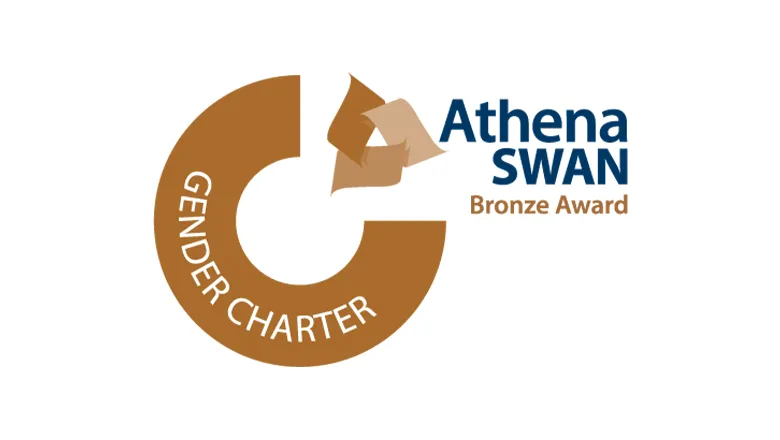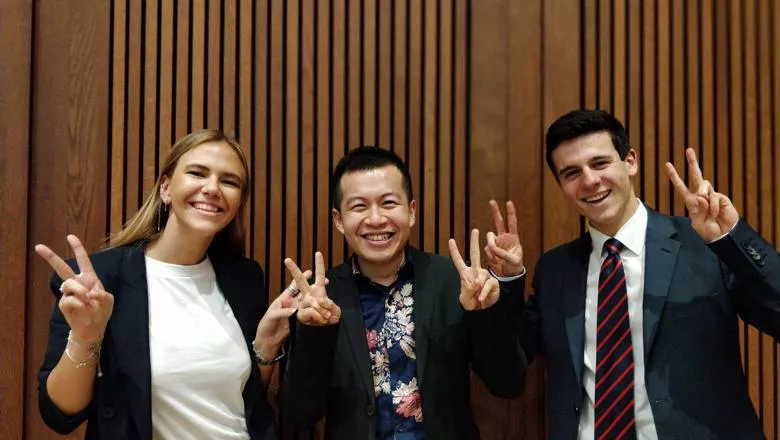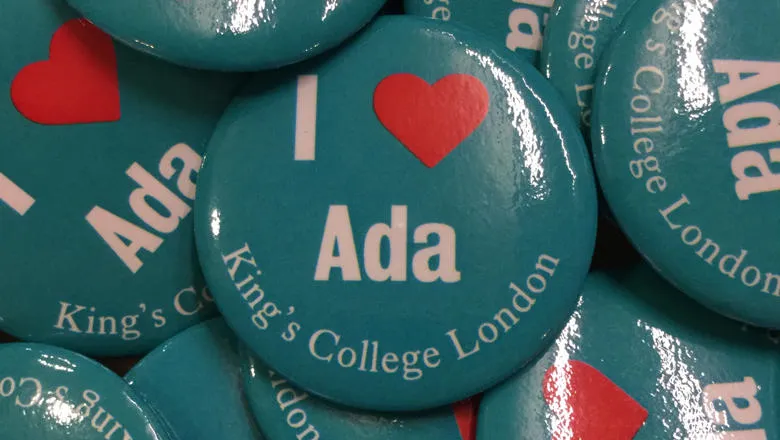
Dr Helen Coulshed MSci, PhD, FHEA, MRSC
Senior Lecturer in Chemistry Education
- NMES Inclusive Education Staff Partner
- PGT Sub-Assessment Board Chair
- Inorganic Chemistry 1 Module Lead
- Research Methods Module Lead
Research interests
- Chemistry
Biography
Dr Helen Coulshed is a Senior Lecturer in Chemistry Education in the Department of Chemistry, King’s College London.
Helen holds an MSci from Queen Mary College, University of London (UK) (2009). She conducted a notable summer project funded by EPSRC and GSK, focusing on molecularly imprinted polymers for statin side chain synthesis. The project involved polymer synthesis, template imprinting, and aldol reactions for 2,4-pentadione production. Her excellence earned her Marie Curie funding to attend the NASCENT Physical Chemistry Winter School in Warsaw.
For her master's project, Helen worked with Professor Adrian Dobbs and Homerton Hospital, improving the synthesis of the trans isomer of Vitamin D3 for use as an analytical standard and exploring its potential medical applications.
As a part of the University of Bristol Chemical Synthesis Centre for Doctoral Training (BSC CDT), Helen engaged in a PhD project with Professors Duncan Wass and Paul Pringle, focusing on diphosphoamine ligand design and catalysis.
Throughout her academic journey, Helen actively contributed to teaching and mentoring. She excelled in laboratory demonstrations and provided guidance to undergraduates, summer school students, and non-native English-speaking peers. Her expertise extended to Sheffield Hallam University, where she facilitated practical classes, demonstrated for undergraduates and pharmaceutical science master's students, designed undergraduate practical courses, and managed electron ionization mass spectrometry service (EIMS) before starting at King’s in 2015 as a Teaching Fellow. Helen has since become a lecturer on the academic education pathway and won a King’s Teaching award for Inclusive Education due to her extensive work in developing the Chemistry Outreach Program. In 2020, Helen successfully applied to become chair of the Faculty of Natural Mathematical and Engineering Sciences Equality, Diversity and Inclusion committee.
Research interests
Evaluative judgement and understanding how chemistry students determine what high-quality means in the context of chemistry assessments.
Teaching
- Inorganic Chemistry 2
- Advanced Analytical Chemistry
- UG Research Methods Labs and Literature Review
- MSci Research Project & Dissertation
- MRes Research Project in Interdisciplinary Chemistry
- MRes Expanding the Frontiers of Chemistry
Research profile
For more information on Dr Coulshed's research please see her Research Portal page
The Coulshed Group
Postgraduate Researchers
Helen is interested in evaluative judgement and understanding how chemistry students determine what high-quality means in the context of chemistry assessments. Her research focusses on how students develop their evaluative judgement during their chemistry degree programme and developing methods where staff and students can co-create a shared understanding of what quality means in the context of an assessment.
News
Chemistry student to explore healthy ingredients that give users the same buzz as alcohol
The project is a collaboration with functional drinks company GABA Labs.

Athena SWAN success for NMS
All five departments of the Faculty of Natural & Mathematical Sciences now hold Athena SWAN awards.

Diversity in STEM
Dr Michael Bojdys, Reader in Chemistry, is one of the contributors to an important new essay examining ways of promoting diversity in science.

Giving students the skills they need to succeed in a globalised world
The Departments of War Studies, Chemistry and Informatics are pleased to announce the launch of their new innovative online module for students, ‘Professional...

Staff in the departments of Chemistry and Maths win King's Education Awards
Dr Helen Coulshed, Department of Chemistry and Kwok-Wing Tsoi, Department of Mathematics, have both recently won King’s Education Awards.

NMES Women in Science Week 2016
On Wednesday 5 October we held our own Ada Lovelace Day in the Faculty of Natural and Mathematical Sciences, an event to round off a week of activities to...

Discover Science: Ada Lovelace Schools Celebration
Women in Science Week at King’s College London is not only intended to celebrate the incredible women already working and studying in the Faculty of Natural &...

News
Chemistry student to explore healthy ingredients that give users the same buzz as alcohol
The project is a collaboration with functional drinks company GABA Labs.

Athena SWAN success for NMS
All five departments of the Faculty of Natural & Mathematical Sciences now hold Athena SWAN awards.

Diversity in STEM
Dr Michael Bojdys, Reader in Chemistry, is one of the contributors to an important new essay examining ways of promoting diversity in science.

Giving students the skills they need to succeed in a globalised world
The Departments of War Studies, Chemistry and Informatics are pleased to announce the launch of their new innovative online module for students, ‘Professional...

Staff in the departments of Chemistry and Maths win King's Education Awards
Dr Helen Coulshed, Department of Chemistry and Kwok-Wing Tsoi, Department of Mathematics, have both recently won King’s Education Awards.

NMES Women in Science Week 2016
On Wednesday 5 October we held our own Ada Lovelace Day in the Faculty of Natural and Mathematical Sciences, an event to round off a week of activities to...

Discover Science: Ada Lovelace Schools Celebration
Women in Science Week at King’s College London is not only intended to celebrate the incredible women already working and studying in the Faculty of Natural &...

